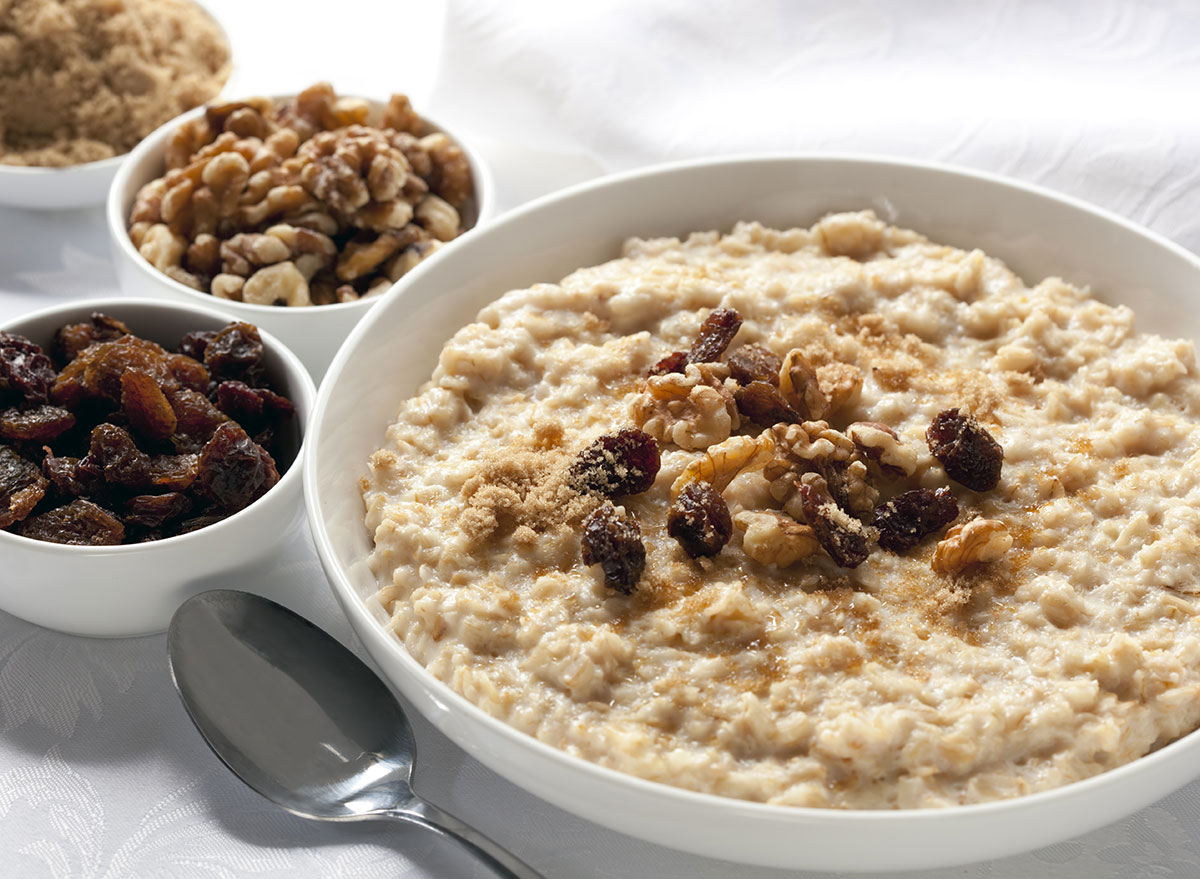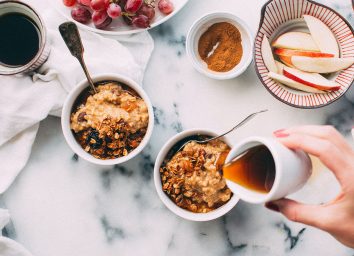One Major Side Effect of Eating Too Much Oatmeal, Says Science

Don’t get us wrong—there are a lot of incredible benefits to eating oatmeal. In fact, oatmeal is by far one of the best complex carbs to have in your diet because it assists with weight loss, protects your heart, and even helps you live longer. Nevertheless, you can eat too much of any food—no matter how healthy it is. That’s why it’s important to take note of this one major side effect of eating too much oatmeal at once.
While oatmeal is considered one of the best carbs you can eat, too much oatmeal can actually cause an uncomfortable amount of belly bloat on your body. That’s because oatmeal contains a significant amount of dietary fiber, and too much fiber at once can cause belly bloat if your body isn’t used to it. (Related: The 7 Healthiest Foods to Eat Right Now)
Why does fiber cause belly bloat? It has to do with the way your body digests it. Fiber is a type of indigestible carbohydrate found in plant cell walls that can actually attach itself to other carbohydrates you digest and flush them out of your system. This process is helpful for your gut health and digestion, and it can actually keep you feeling full for longer periods of time. Foods high in fiber include fruits, vegetables, whole grains, beans, legumes, avocados, leafy greens, and of course, oats.
Oats are known as a soluble fiber, which is a type of fiber that’s good for your heart health and lowering your cholesterol. In a 1/2 cup serving of rolled-cut oats, you get 4 grams of dietary fiber, which is around 13% to 16% of your daily recommended intake, according to the American Heart Association (AHA).
Oatmeal is still a great option for a meal or snack, but eating too much fiber at once could cause your body to experience some uncomfortable belly bloat—especially if you’ve never had that much fiber before. Americans average only 10 to 15 grams of dietary fiber on a daily basis when they really need 25 to 30 grams, per the AHA.
However, going from eating hardly any fiber to eating a high-fiber diet will have some immediate negative side effects. One study published by the World Journal of Gastroenterology evaluated the fiber intake of participants after going on a two-week no-fiber diet. After two weeks, the control groups consumed different amounts of fiber for a few months. The results stated that high-fiber groups experienced symptoms of bloating and bowel movement issues.
How much is too much? One report from Duke University’s Student Health Nutrition Services states that eating above 70 grams of fiber will cause negative side effects.
It’s probably safe to say you likely won’t be consuming 70 grams of fiber a day, but it’s important to note that going from no fiber to 25 grams in one day could cause uncomfortable belly bloat. Numerous dietitians recommend starting off small with your fiber intake and increasing from there—which includes how much oatmeal you consume in a day. Just make sure to keep your bowl of oatmeal nutritious with these 11 Healthy Oatmeal Toppings That Help You Lose Weight!








